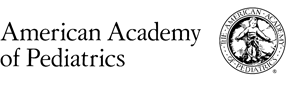
Many types of food can cause allergic reactions in middle childhood. The most common of these are cow's milk and other dairy products, egg whites, poultry, seafood, wheat, nuts, soy and chocolate.
Allergies are caused by antibodies that the body's immune system produces, which react to a component of a particular food and then release chemicals that cause allergic symptoms like a runny nose, sneezing, coughing and itching. Children may also experience stomach pain, bloating, cramping, diarrhea, skin rashes and swelling. Although these reactions can occur almost immediately after consuming these foods, they may be delayed for hours or sometimes even days.
Diagnosing food allergies is not easy. Identical symptoms may be caused by other disorders, and pinpointing the offending food can be difficult. Your pediatrician may refer your child to an allergist, who has several diagnostic options. The allergist might suggest an elimination diet, a procedure in which suspicious foods are removed from the diet for a period of time and symptoms are closely monitored to see if they subside. After several weeks the foods are reintroduced one by one, and allergic responses are again evaluated to determine which food, if any, is really the cause of the problem.
Your doctor might also use skin and blood tests. He or she might prick the skin on your child's back or arm, and then introduce a liquid extract of the suspicious food to see if a response - swelling and itchiness, for example - takes place. However, while the validity of this test is widely accepted in diagnosing airborne allergies, there is controversy about its reliability in detecting food allergies.
Some doctors also use the RAST test, in which a sample of your child's blood is mixed with food extracts. Then the blood is evaluated to determine whether antibodies to that food are present. The reliability of this test may vary from laboratory to laboratory.
Once an offending food has been identified, your doctor will probably recommend that it be removed from your child's diet. This means not only eliminating eggs, for example, but also all products that contain them. As a result, you may have to become more diligent reading labels in the supermarket. A child allergic to wheat gluten, for instance, may have to avoid most grains, including cookies, pies, cakes, and pasta, as well as processed cheese, salad dressings and many other foods. The situation becomes even more challenging if your child is allergic to several food items.
Ask your doctor to suggest alternatives to the foods to which your child is allergic. Can egg substitutes be used for a youngster allergic to eggs? When a child is allergic to milk, should she eat additional protein-rich foods (legumes, chicken, fish, meat) and calcium-rich items (sardines, broccoli, spinach)? Can other products be consumed in place of cow's milk? If your child is allergic to wheat, can you cook with corn flour or rice flour instead?
Caring for Your School-Age Child: Ages 5-12 Bantam 1999
© Copyright 2000 American Academy of Pediatrics
